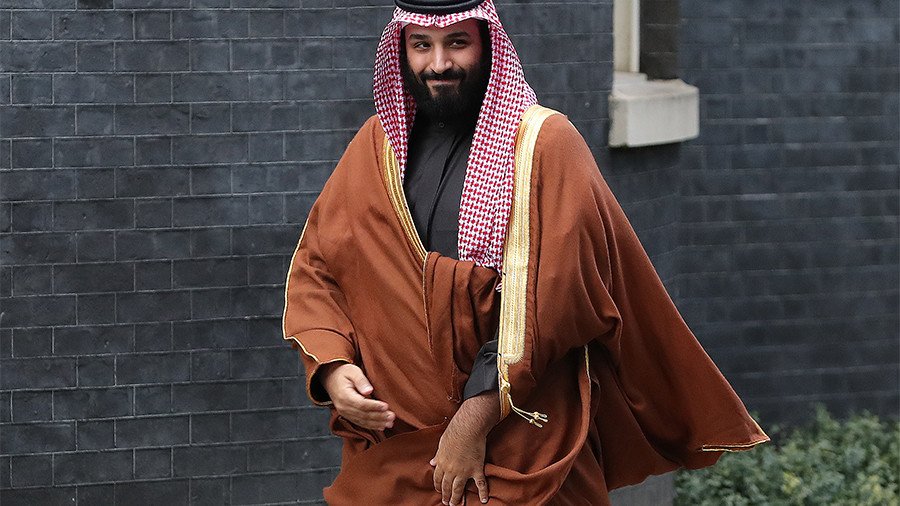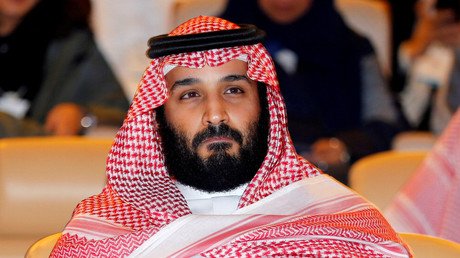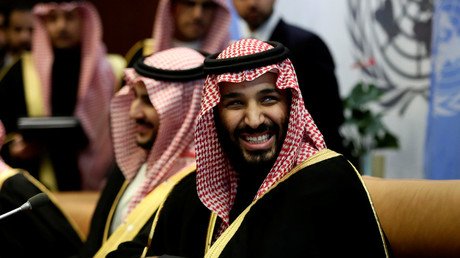Disney in the desert? Saudi Prince courts US entertainment and tech leaders

Saudi Crown Prince Mohammed bin Salman has met with American tech and entertainment leaders in a bid to entice them to his country. Bin Salman is visiting the US as part of a charm offensive.
He has met with top executives in Los Angeles this week, including Amazon’s Jeff Bezos and Disney’s Robert Iger, as he wrapped up a three-week tour of the United States.
“Our focus in the past was only on oil and gas and commercial activities” Ahmed Khateeb, a senior Saudi official in charge of deals in both the defense and entertainment sectors, told the Wall Street Journal. “But now we have expanded the relationship and started to talk about social change – culture, entertainment and tourism.”
In the midst of a nearly three-week tour of the U.S., Saudi Arabia's Crown Prince is on a mission to reshape a Saudi-U.S. business relationship that was long based on oil sales and military contracts. https://t.co/Cwu5eJjBhy via @WSJ
— Gráinne McCarthy (@grainnemcc) April 5, 2018
Any entertainment industry in Saudi Arabia will have to be built from scratch. Cinemas in the country have been banned for 35 years. Next week, Marvel’s Black Panther will be shown at an AMC theater in Riyadh, the first movie shown since the ban was lifted in December.
On Tuesday, Saudi officials pitched the idea of Disney theme parks, live shows and resorts to assembled Disney executives. If Prince Mohammed succeeds in his negotiations with the company, a Disneyland in Saudi Arabia might look a little different from those in Paris or Orlando, however.
For starters, the Disney princesses’ costumes would be illegal on the streets of Riyadh. In a country where every aspect of life is regulated by an ultra-conservative Wahhabist interpretation of Islam, women are required to be fully covered at all times.
Crown Prince meets @Disney CEO, discusses potential projects in #Saudi Arabia https://t.co/v14gKrEFrJ#CrownPrinceinLA#CrownprinceinUSpic.twitter.com/rmil4SrgYX
— Arab News (@arabnews) April 4, 2018
While Prince Mohammed won praise for stripping power from the country’s Religious Police in 2016 and for finally allowing women to drive last year, Saudi laws require a woman to obtain permission from her male guardian to travel, study, or work. Saudi women’s second-class status is enshrined in the kingdom’s legal system, where the word of a woman is worth half that of a man.
Nevertheless, the Saudi government’s charm blitz continues, propped up and supported by several heavyweight PR firms, including the Podesta Group.
Saudi officials have discussed film and television partnerships with Netflix, Time Warner, and NBC Universal. In addition, Bin Salman is working on deals to bring Amazon and Google data centres to the kingdom.
This focus on entertainment and technology is a core part of “Saudi Vision 2030,” a development plan aimed at opening and diversifying the Saudi economy, and weaning the country off its dependence on oil revenue. The oil and gas sector accounts for around 50 percent of Saudi GDP and 85 percent of its exports.
Opening the Saudi economy may one day be a matter of survival for the kingdom. Thanks to shale-oil extraction, US crude oil output overtook Saudi production this year for the first time since the 1990s.
But when change comes to the kingdom, it comes slowly. Oil and weapons remain the mainstays of trade between the US and Saudi Arabia. Before meeting with the tech and entertainment titans, the prince signed a $450 million deal with Boeing to maintain and repair Saudi military aircraft.
Last year, President Donald Trump signed an arms deal worth $350 billion with the Saudi government, the largest arms deal in American history.
Like this story? Share it with a friend!














